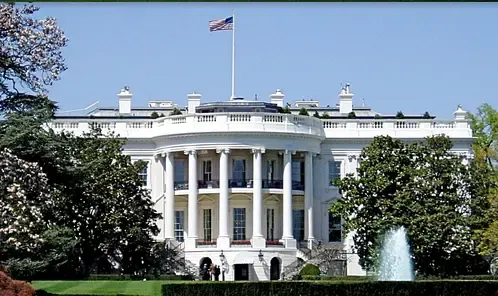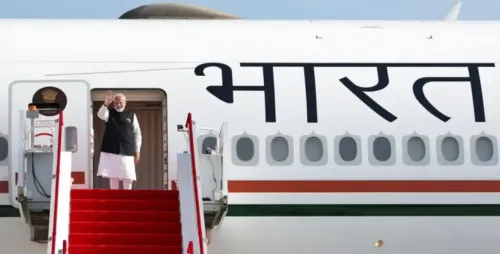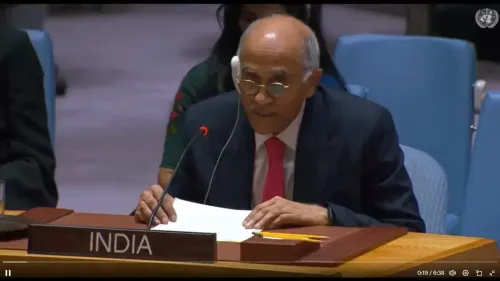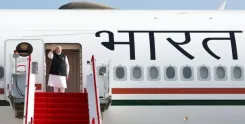Did Pakistan Breach the Indus Water Treaty Through Terrorism?
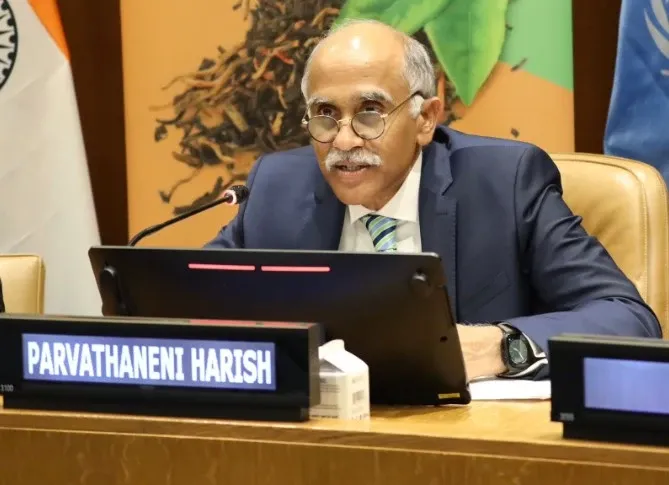
Synopsis
Key Takeaways
- Indus Water Treaty is pivotal for water management between India and Pakistan.
- India accuses Pakistan of terrorism undermining the treaty's spirit.
- Suspension of the treaty could lead to significant regional conflicts over water.
- Calls for updates to the treaty highlight changing security and environmental concerns.
- Dialogue remains essential for resolving disputes and ensuring cooperation.
United Nations, May 24 (NationPress) India has accused Pakistan of violating the Indus Water Treaty by undermining its spirit of cooperation through countless terrorist assaults and hindering the necessary updates to the infrastructure aimed at ensuring its safety.
“In spite of this, India has exhibited remarkable patience and generosity,” stated India’s Permanent Representative P Harish, addressing what he termed Pakistan’s disinformation campaign regarding New Delhi's suspension of the treaty.
“India has ultimately declared that the Treaty will be put on hold until Pakistan, recognized as a global hub of terrorism, credibly and irreversibly ceases its support for cross-border terrorism. It is evident that Pakistan is the one in violation of the Indus Water Treaty, not India,” he emphasized.
Following the tragic killing of 26 individuals by terrorists linked to Pakistan last month, India announced the suspension of the agreement established in 1960 under the auspices of the World Bank to guarantee Pakistan a consistent allocation of water from the Indus and its associated resources.
During an informal meeting of the Security Council focused on safeguarding water during armed conflict, Harish highlighted the issues that have surfaced since the treaty’s inception.
“Significant fundamental changes have occurred, not only due to increasing security threats from cross-border terrorist attacks but also due to heightened demands for clean energy production, climate change, and demographic shifts,” he noted.
While advancements in dam infrastructure technology have improved safety and enhanced water utilization, “many of the older dams are experiencing serious safety challenges.”
He mentioned that New Delhi has formally approached Islamabad multiple times over the past two years to discuss necessary modifications to the treaty, all to no avail.
“Pakistan has persistently obstructed any adjustments to this infrastructure and any amendments to the provisions, which are permissible under the treaty,” Harish pointed out.
Harish underscored that while the treaty's preamble is grounded in a spirit of goodwill and friendship, Pakistan has subjected India to three wars and numerous terrorist attacks.
He added that these malicious actions continue to jeopardize the safety of our projects and civilians' lives.
“Over the past four decades, more than 20,000 Indian lives have been lost in terrorist acts, the latest being the heinous targeted attack on tourists in Pahalgam last month. Notably, in 2012, terrorists even targeted the Tulbul Navigation Project in Jammu and Kashmir,” he stated.

